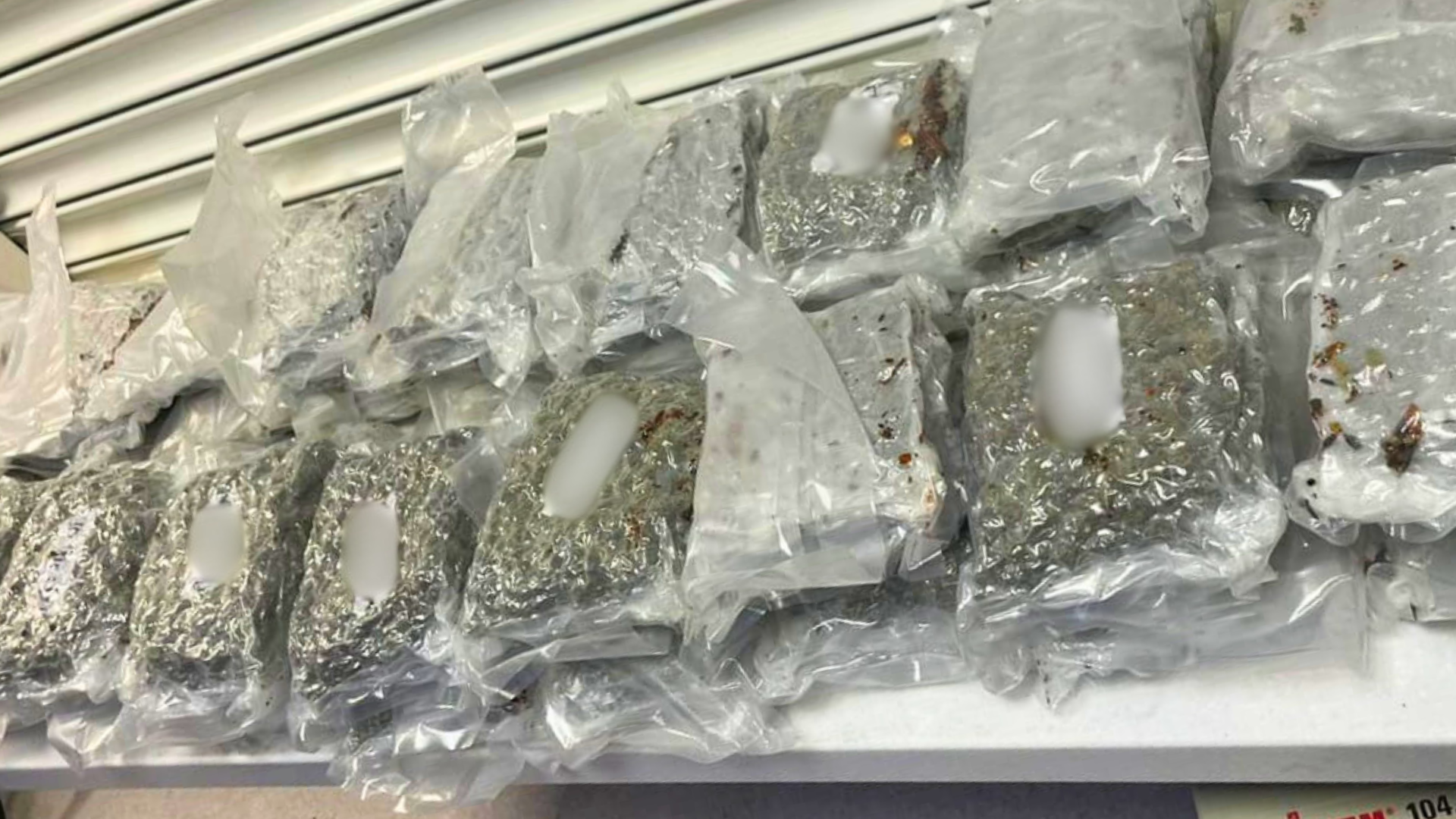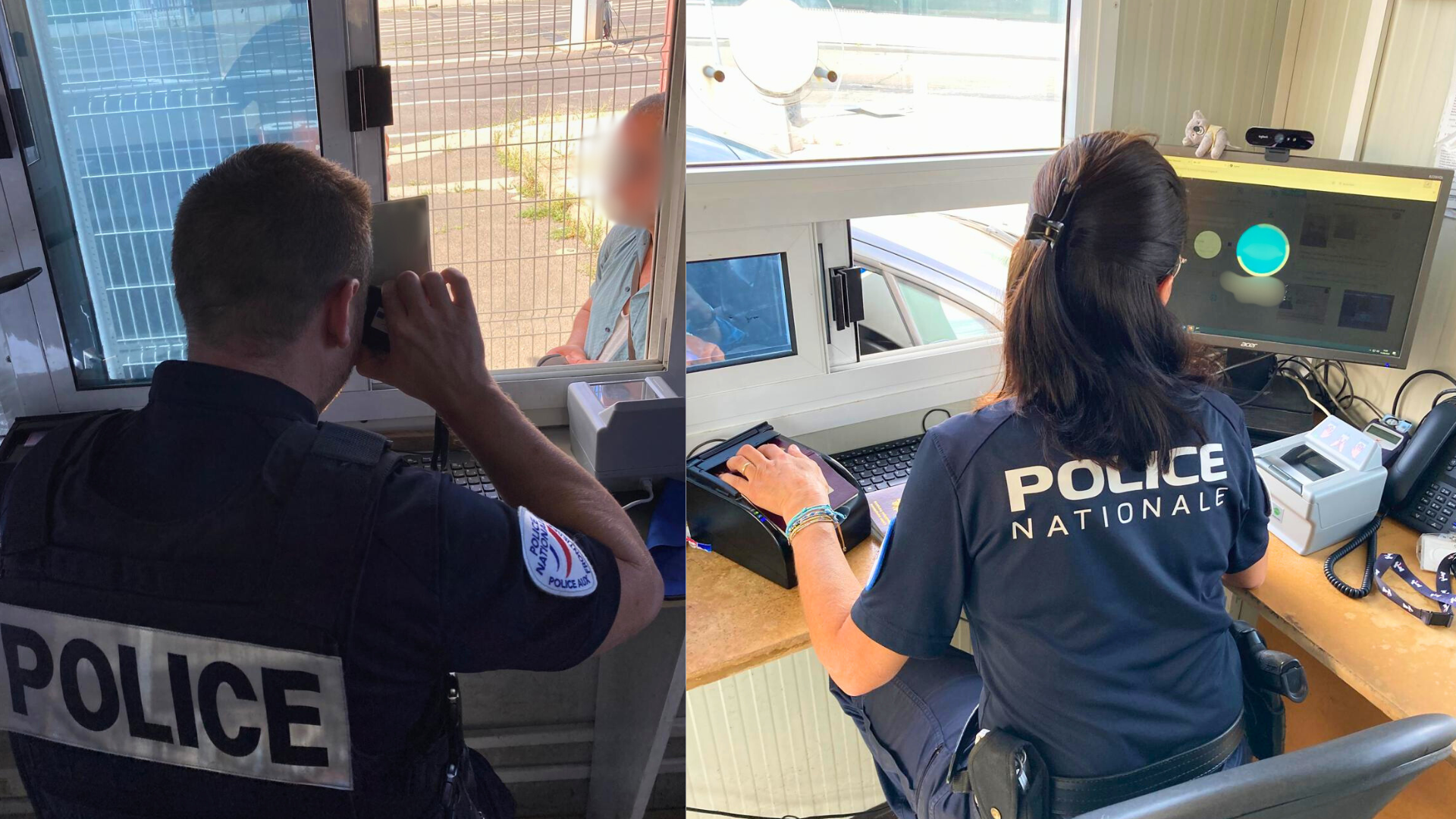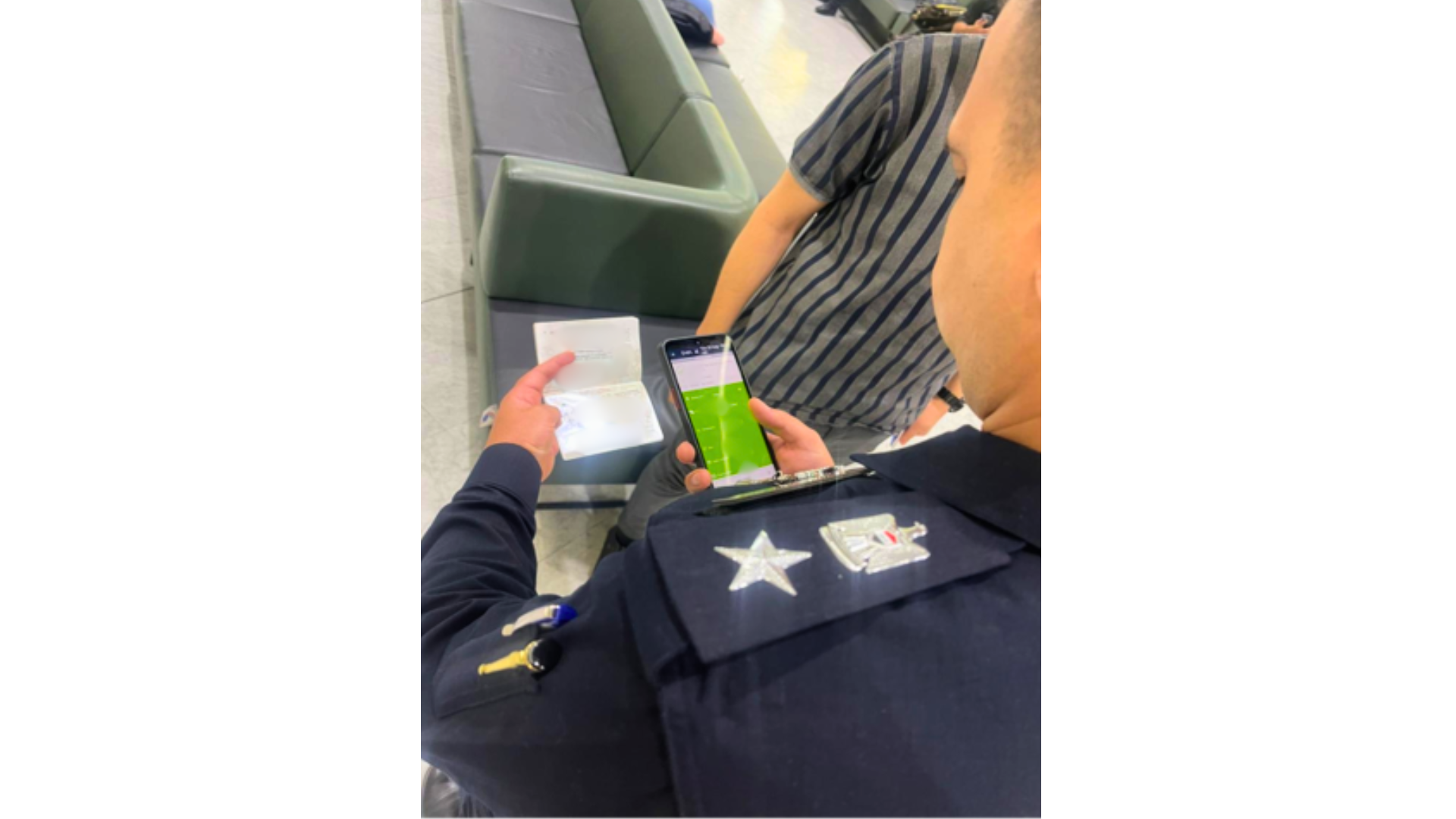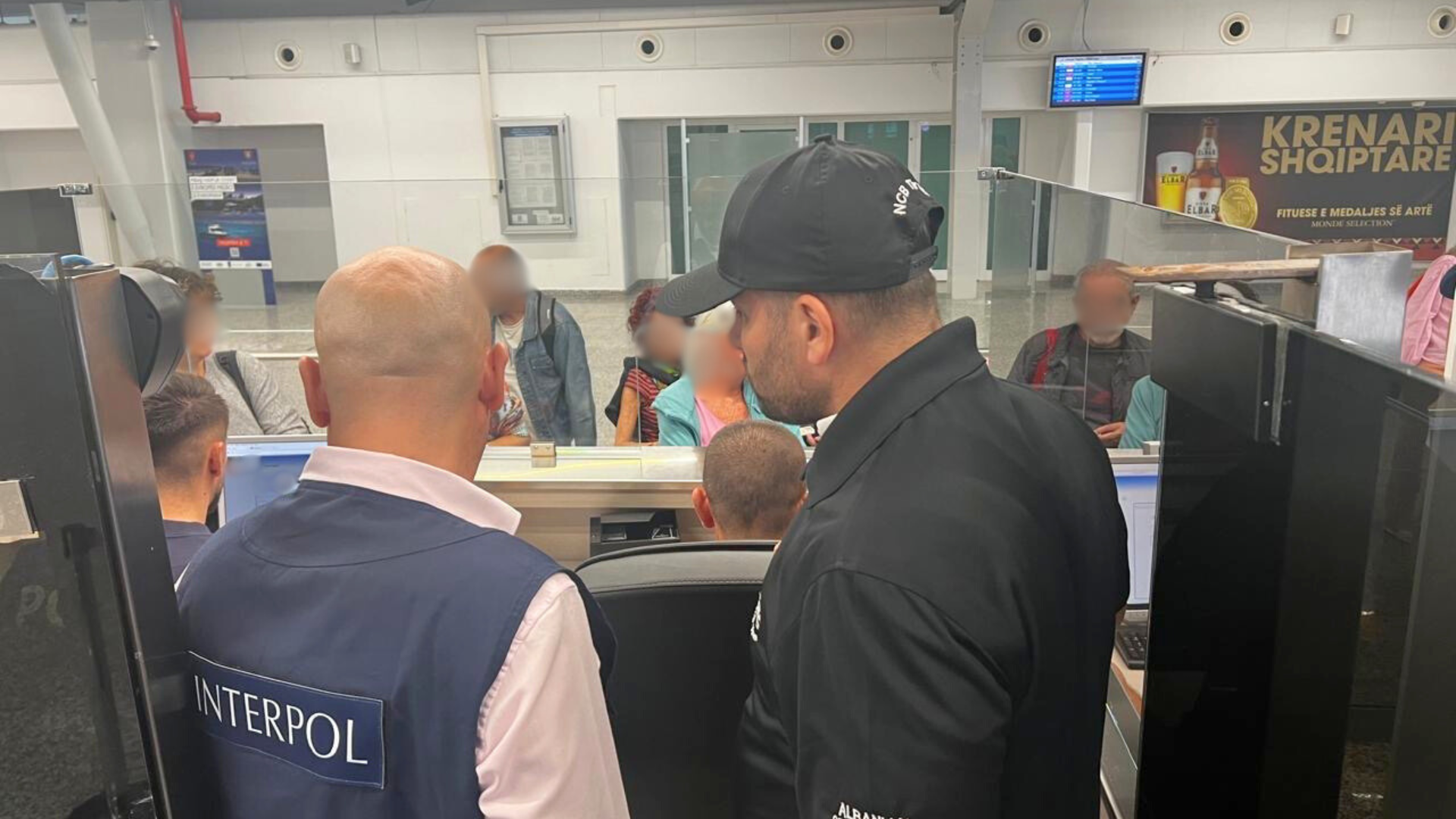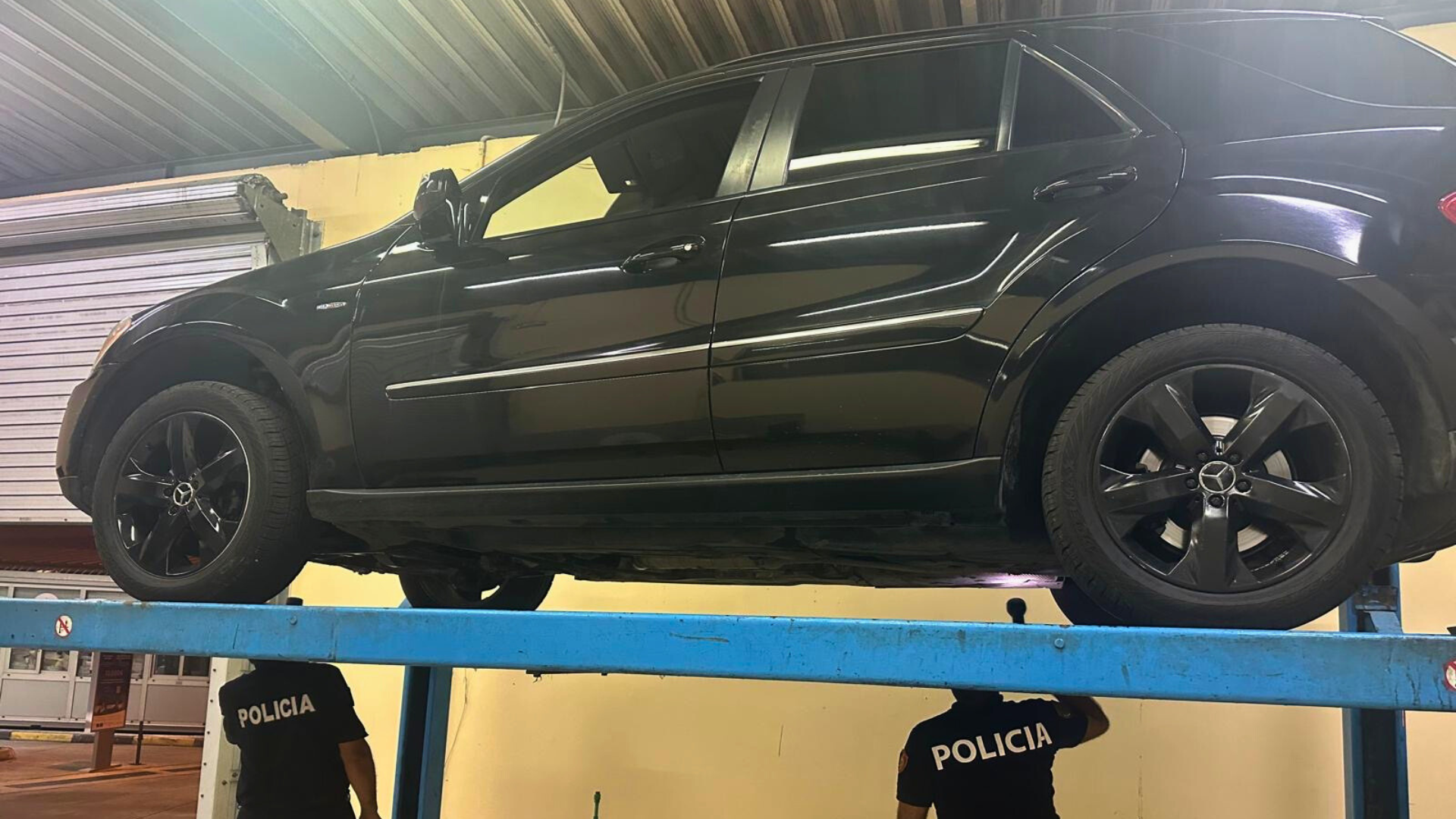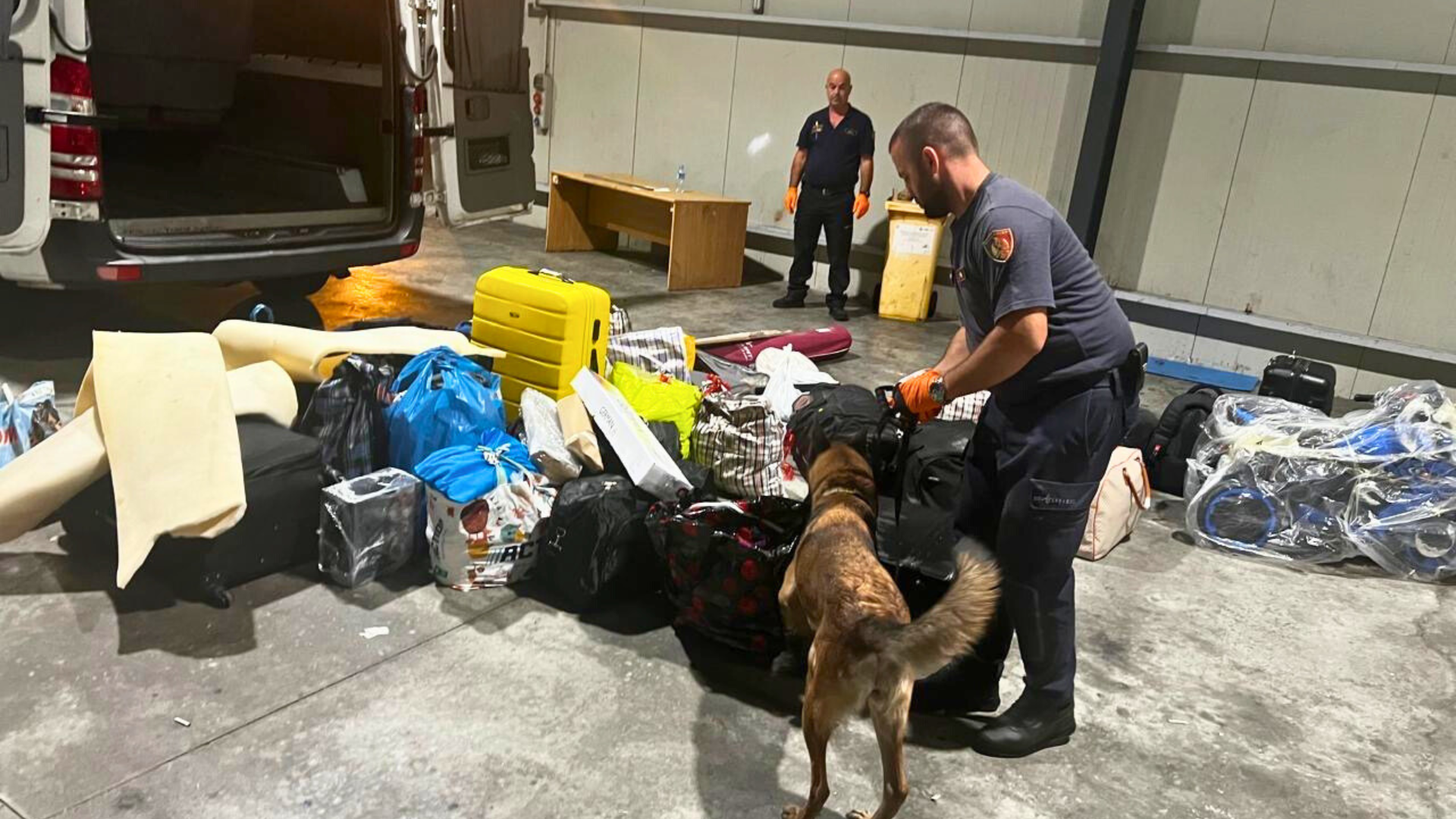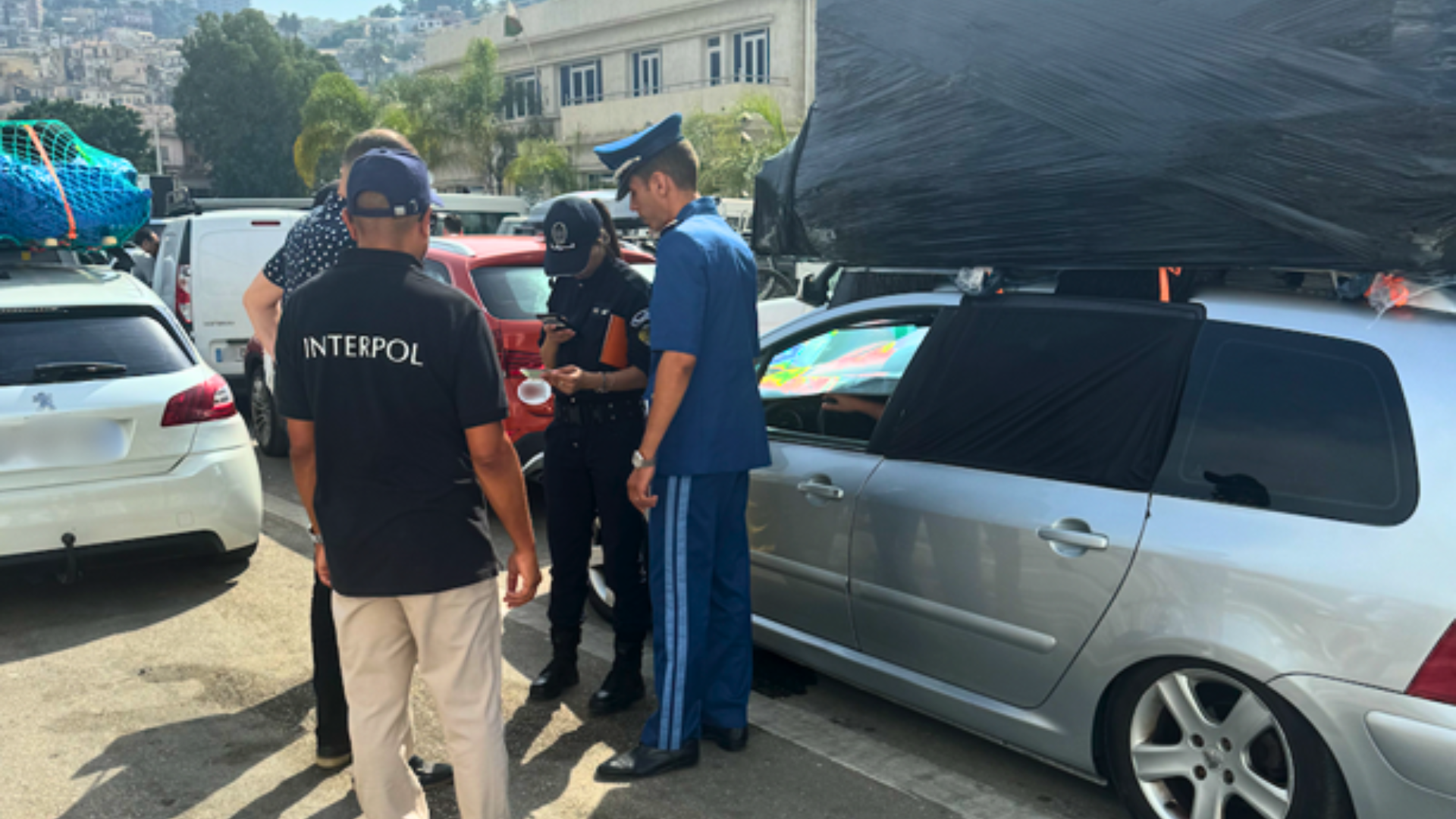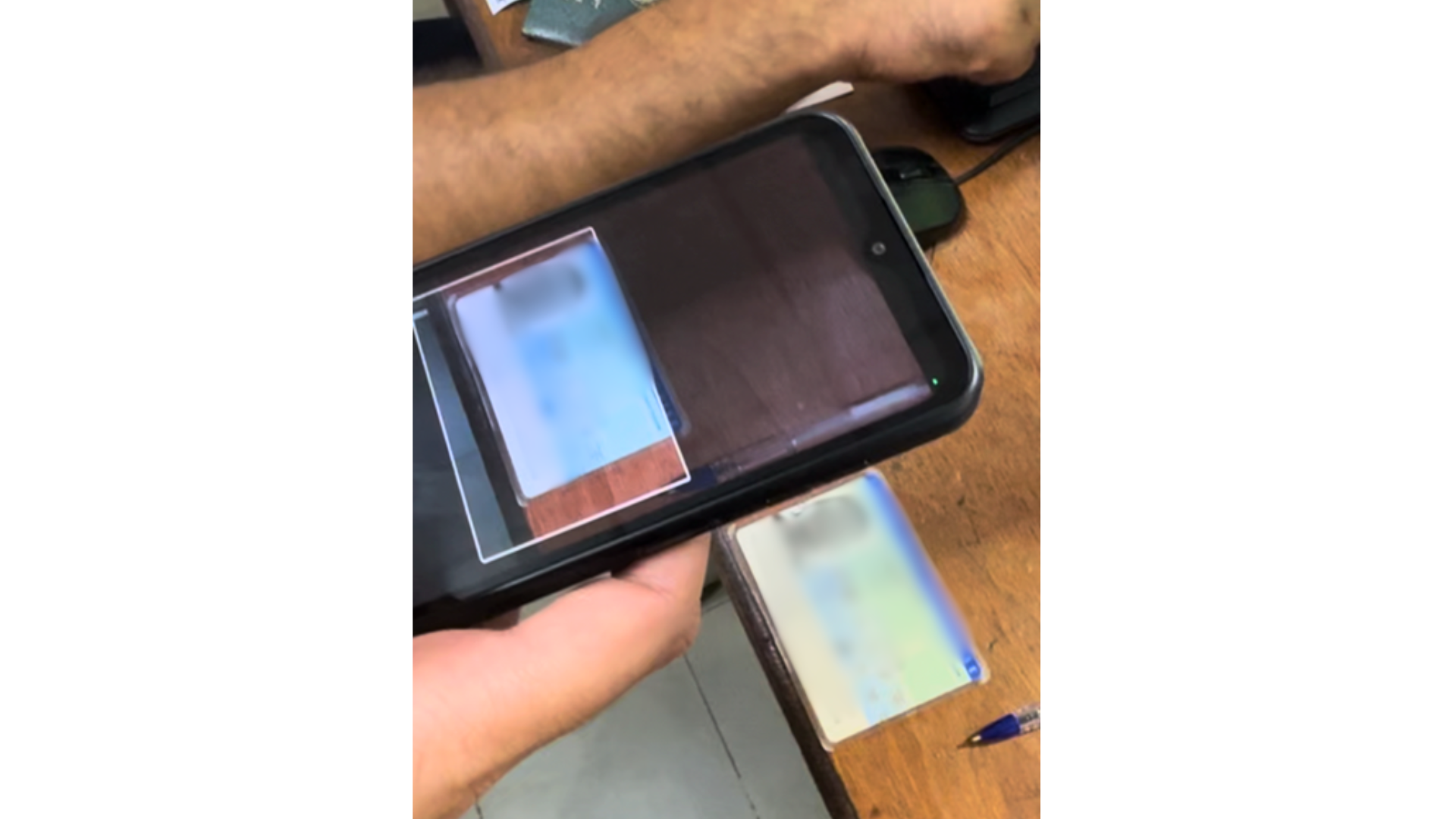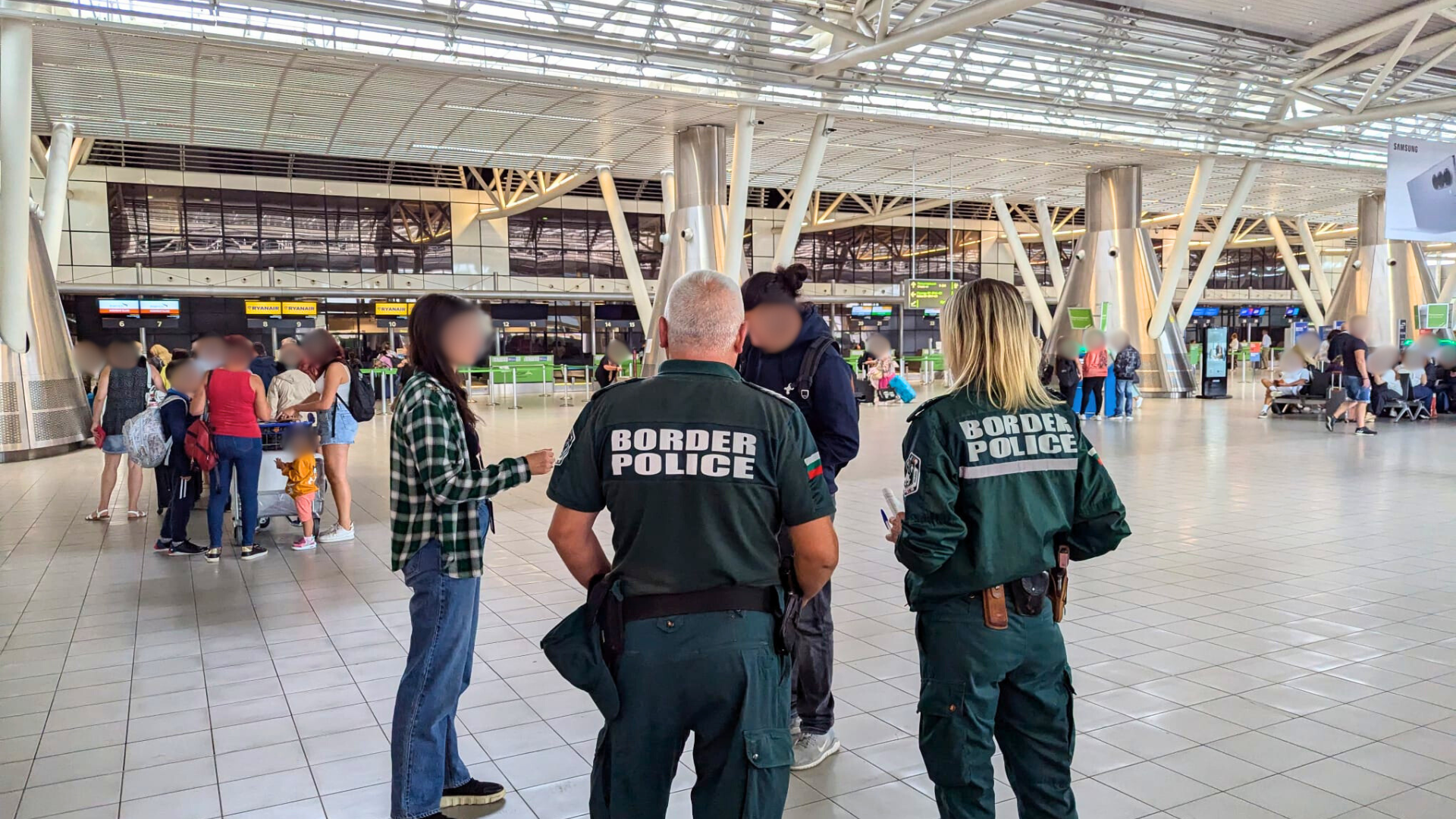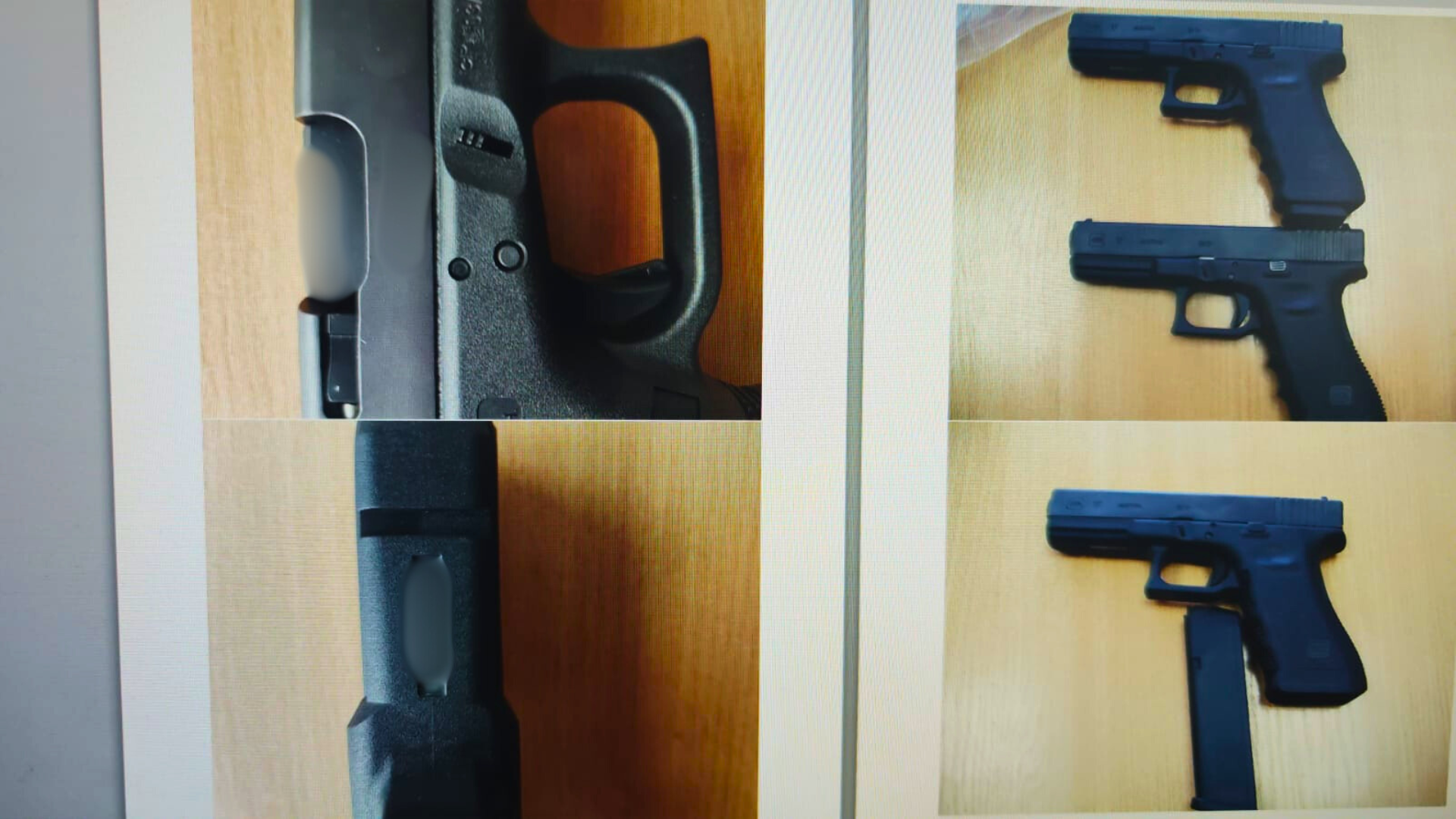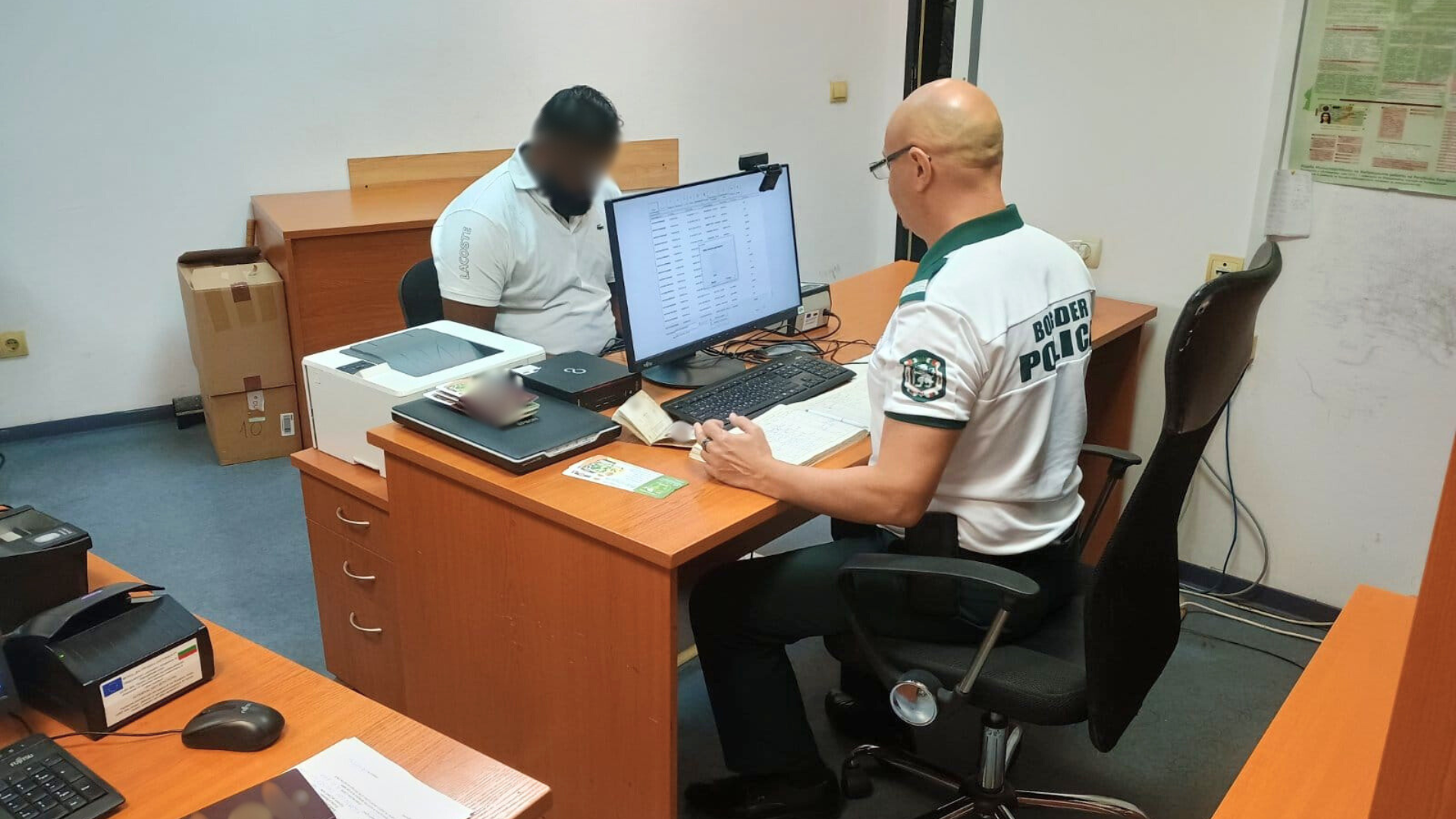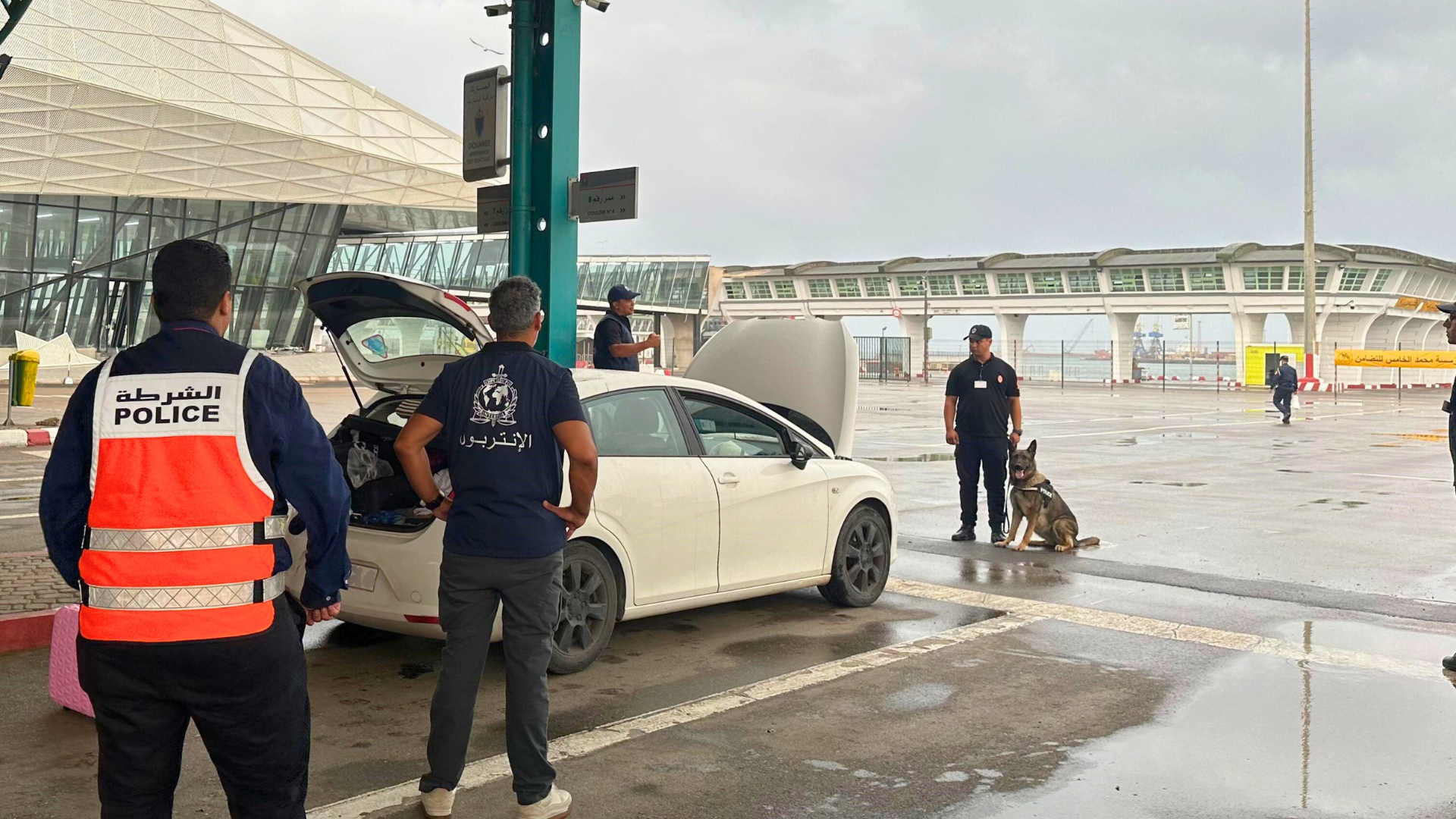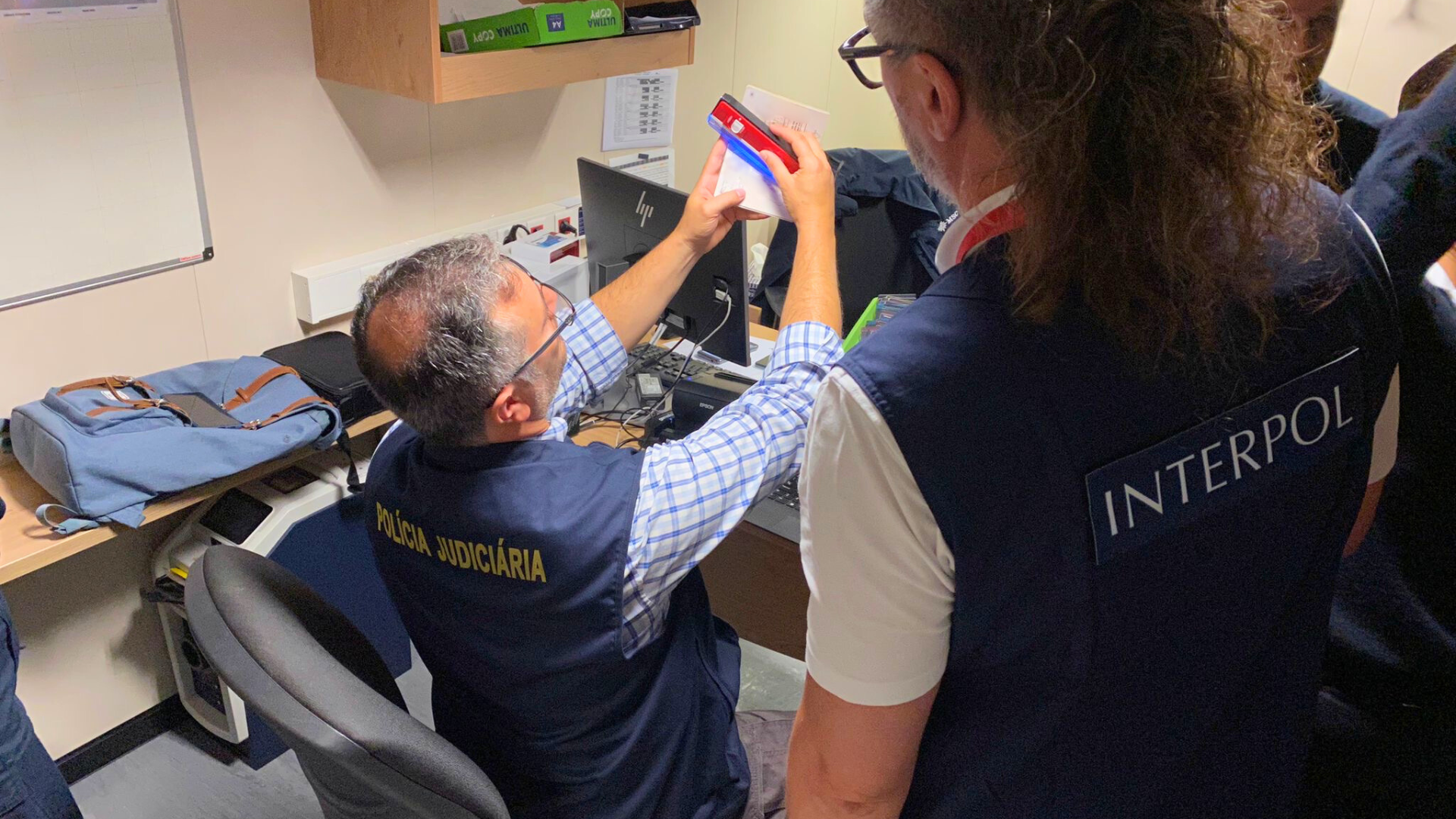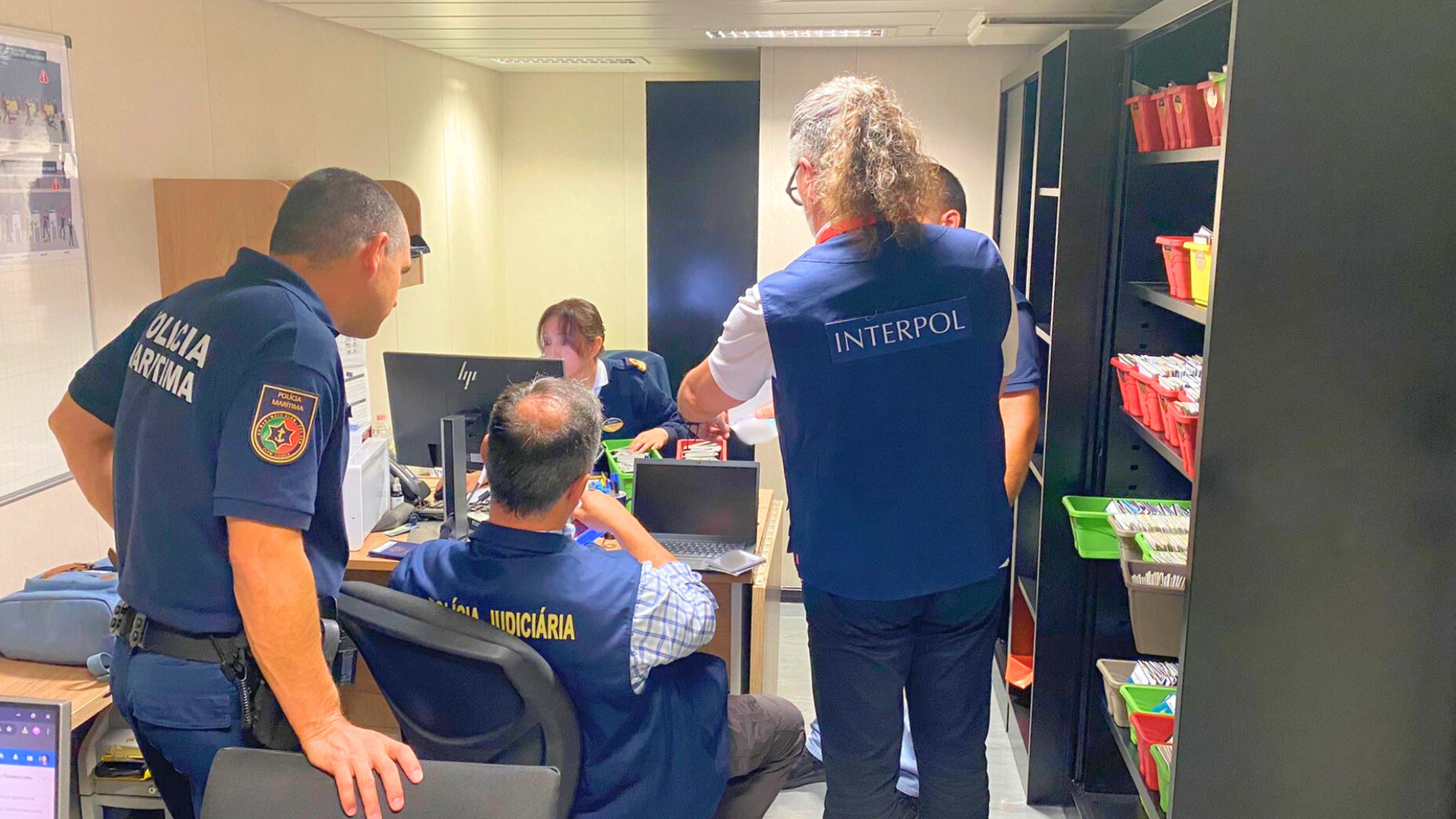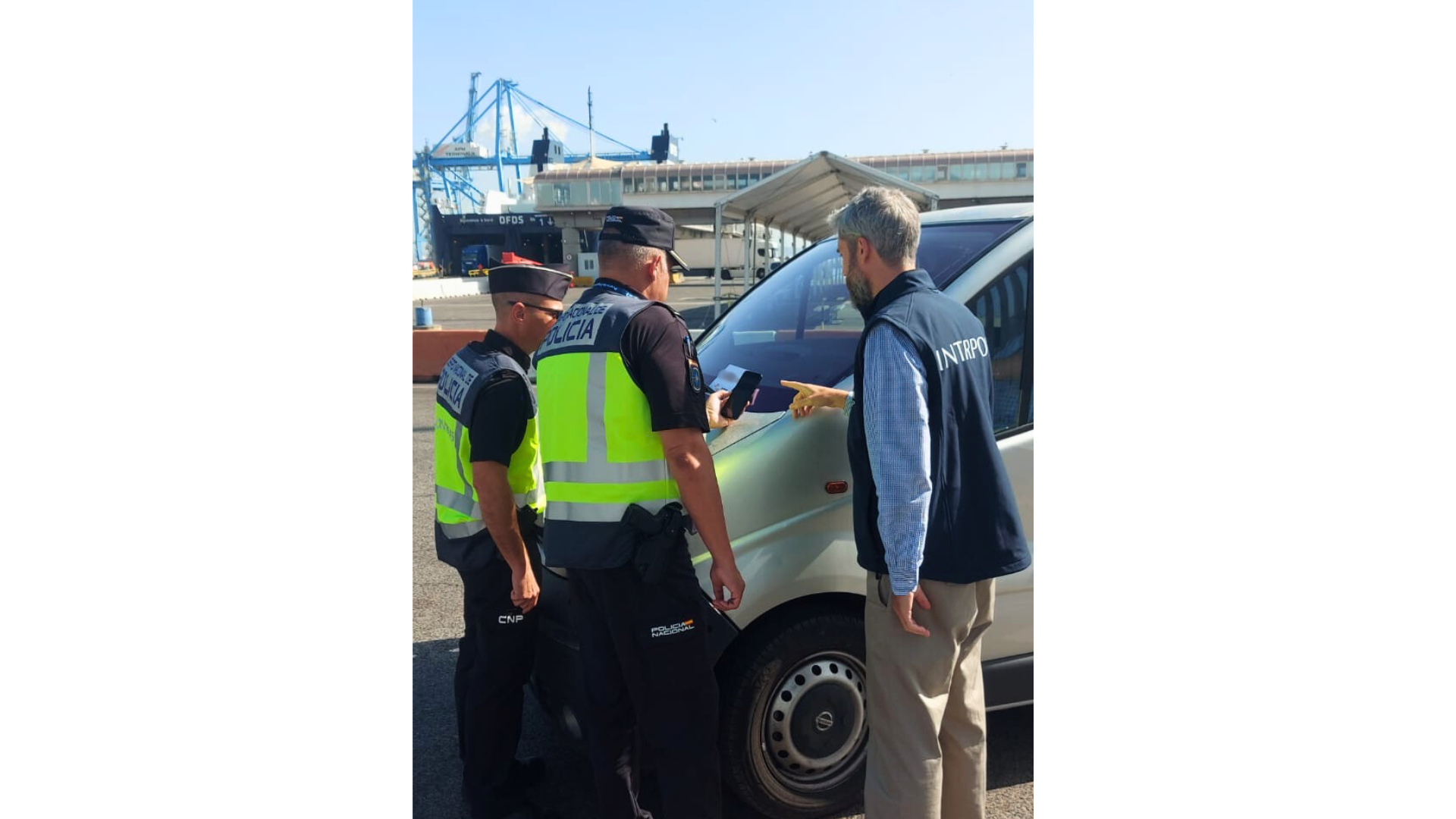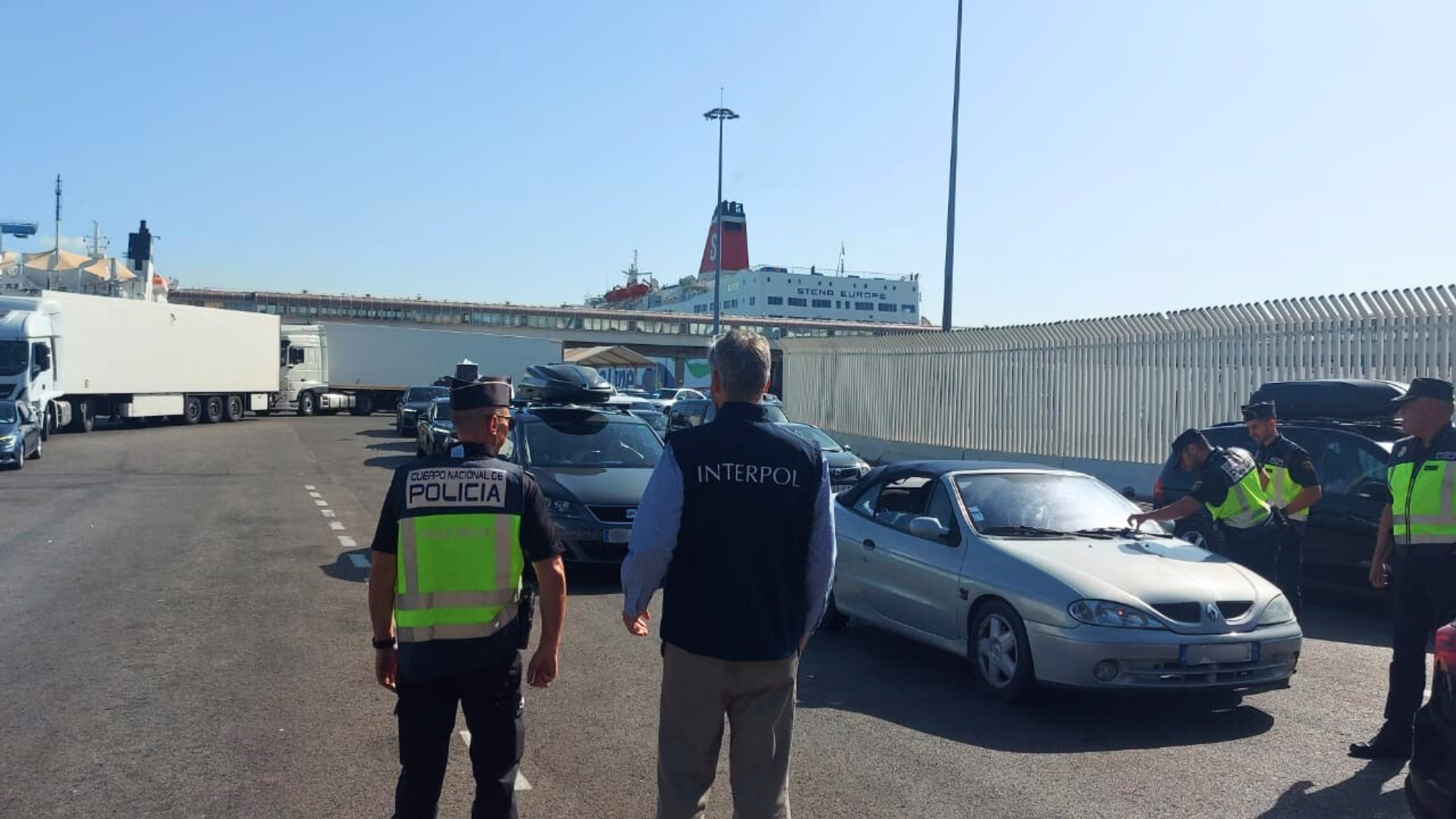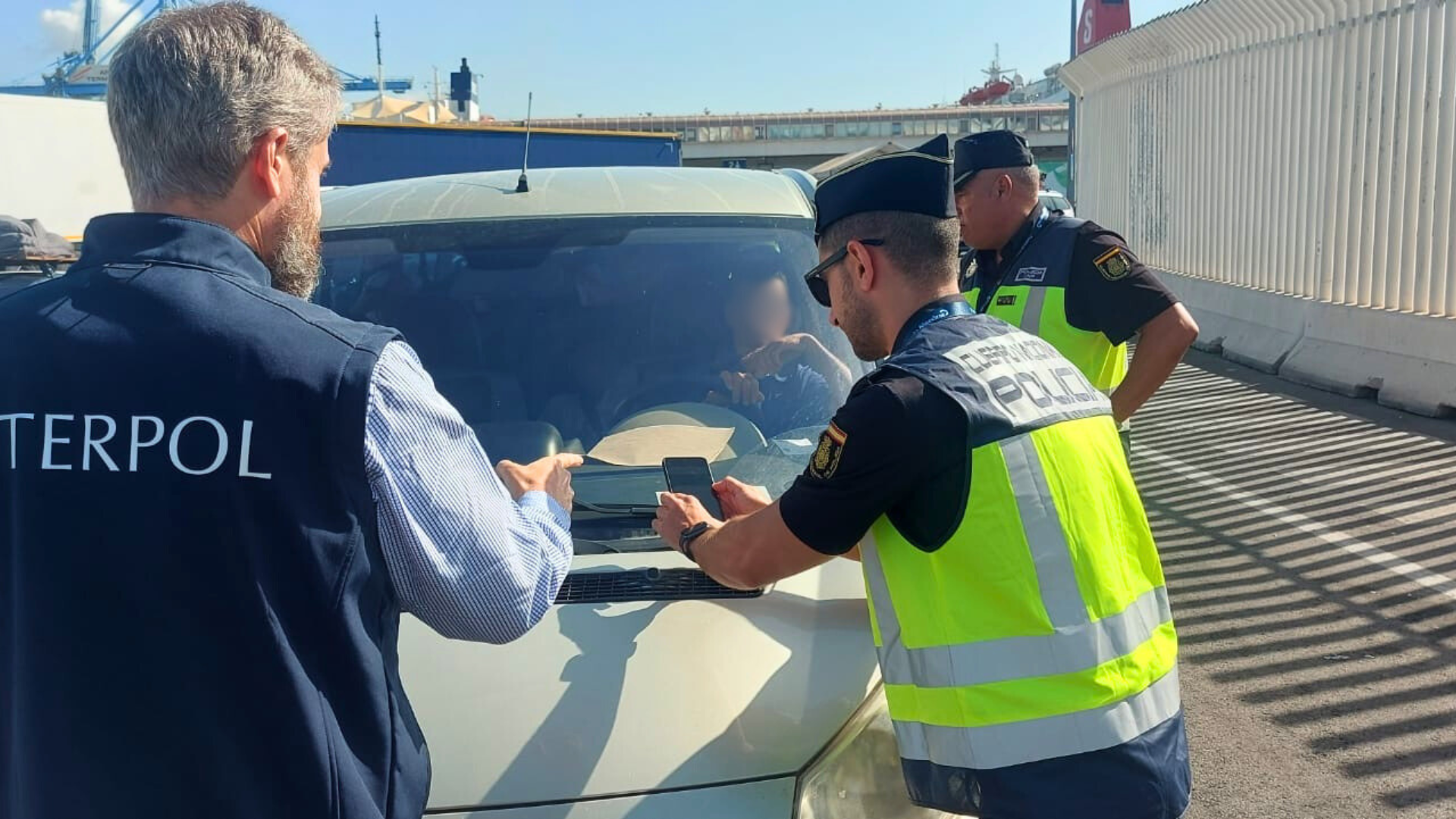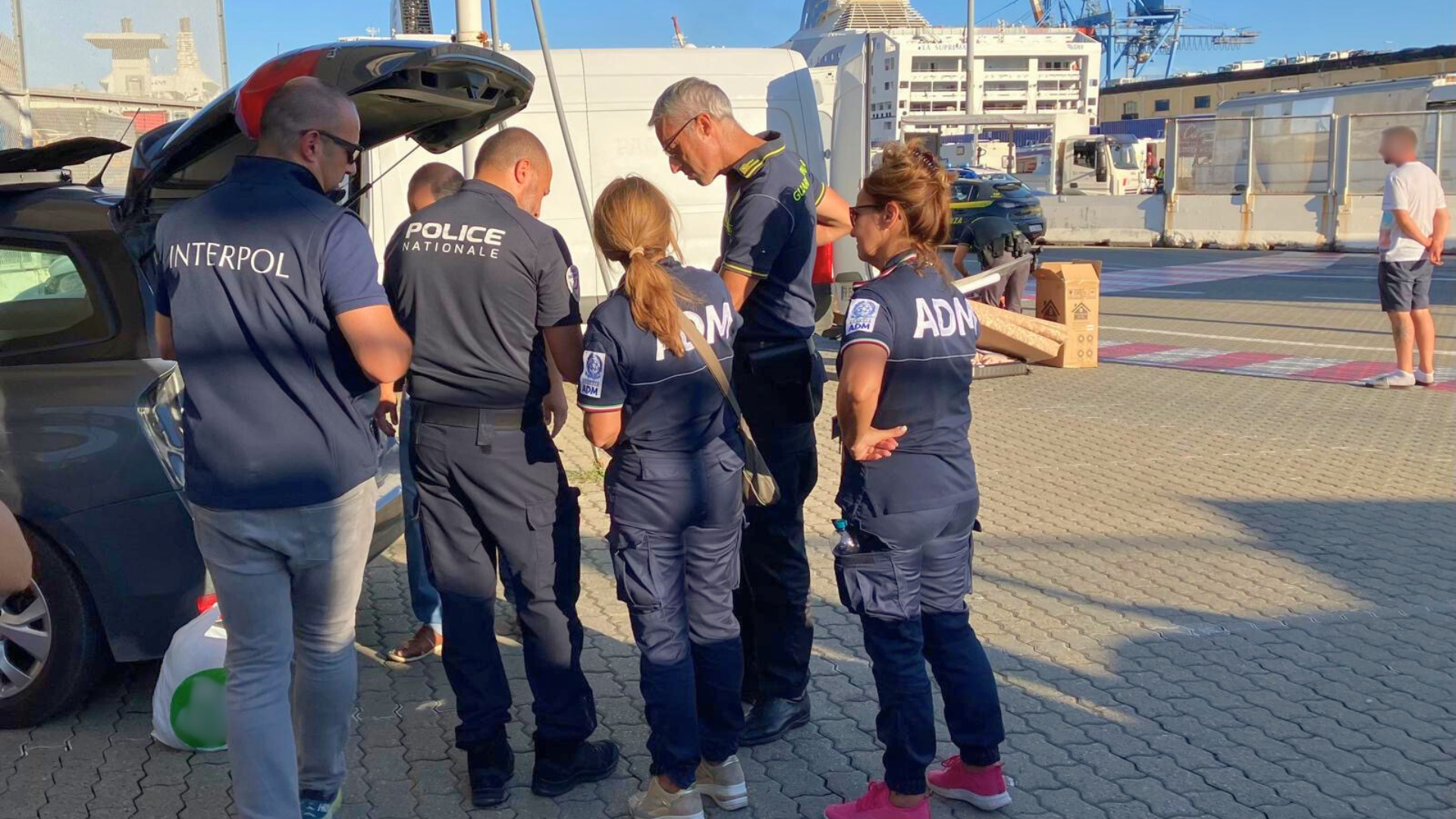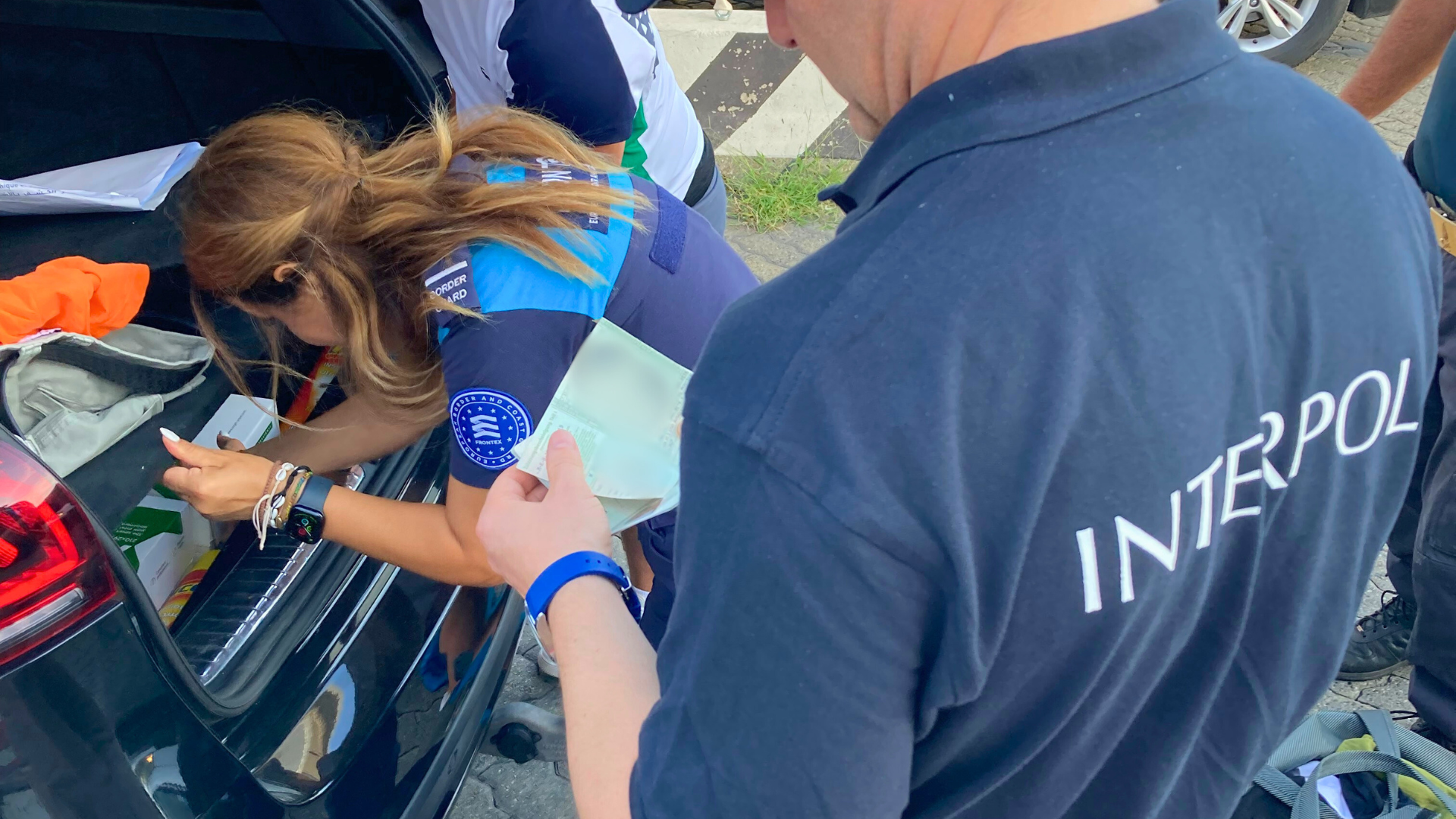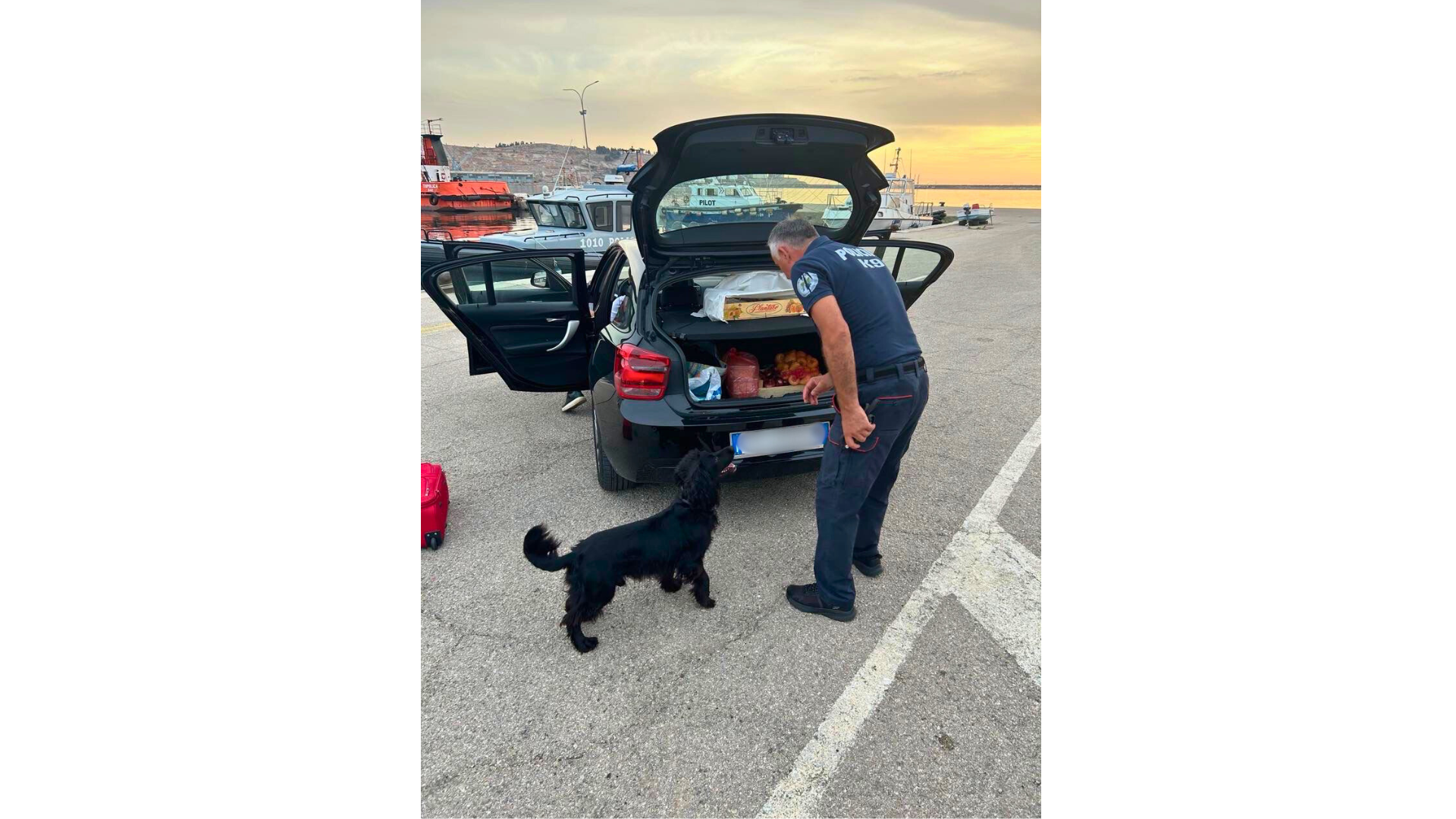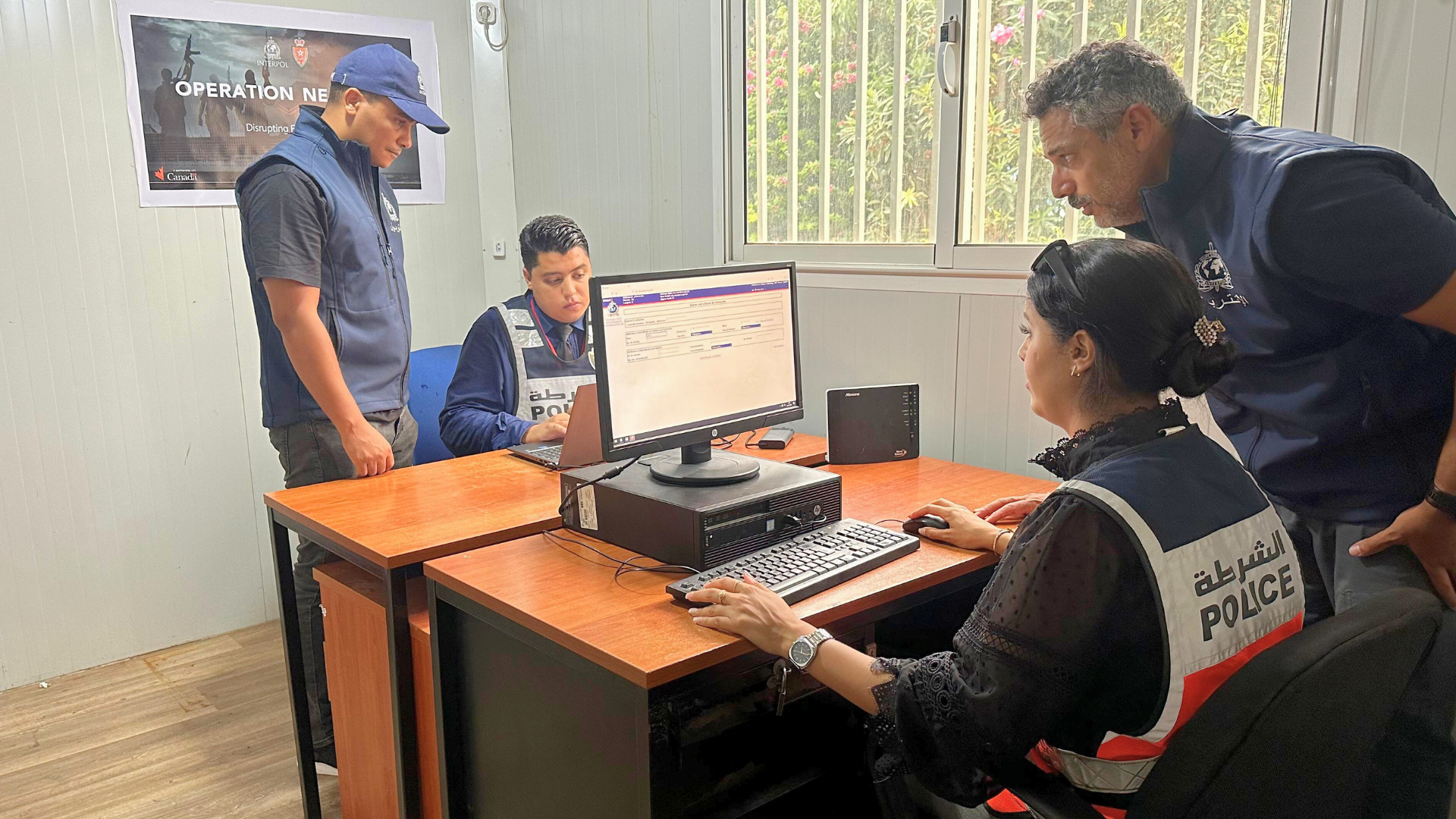LYON, France – An INTERPOL counter-terrorism operation to strengthen border security has enabled millions of crosschecks against international databases, resulting in 66 arrests, significant seizures and the identification of 81 individuals subject to INTERPOL notices and diffusions.
Operation Neptune VI brought together law enforcement agencies from 14 countries with the goal of bolstering security measures and responses around the maritime routes across the Mediterranean Sea, as well as in airports and at land borders in the participating countries.
The initiative, carried out in cooperation with WCO, FRONTEX and Europol, equipped teams with handheld devices and gave local authorities expanded access to INTERPOL databases.
The operation focused on identifying and analysing the movement patterns of Foreign Terrorist Fighters and people with links to terrorism as well as criminal groups responsible for cross-border crimes such as drug trafficking, weapons smuggling and human trafficking.
During Neptune VI, which ran for approximately two weeks in each country, officers on the ground also checked INTERPOL records of stolen vehicles and lost or stolen travel documents, which are both key assets for facilitating terrorist funding and mobility.
By the end of the operation on 16 September 2024, more than 16 million crosschecks had been made against the various INTERPOL databases, generating 187 ‘hits’.
A dozen arrests were made on the basis of INTERPOL Red Notices. Another 54 people were apprehended under national arrest warrants and for crimes detected at the border, including drugs and fraud offenses as well as the smuggling of gold, cash and weapons.
Red and Blue Notices to catch and track terror suspects
One suspect detained as part of the operation was the subject of a Red Notice for a terror attack carried out 23 years ago on a church in Pakistan. The fugitive is being held by local authorities as extradition procedures are carried out.
In another case, airport border police blocked entry to an individual who was the subject of an INTERPOL Blue Diffusion, issued in 2015. The person had previously travelled to join ISIS through a European country.
In contrast to a Red Notice which can form the basis for provisional arrest, a Blue Notice or diffusion is a request between INTERPOL member countries to collect additional information about a person’s identity, location or activities, in relation to a criminal investigation. During the Neptune VI operation, 29 subjects of Blue Notices and Diffusions were identified, allowing officers to track individuals with links to terrorism.
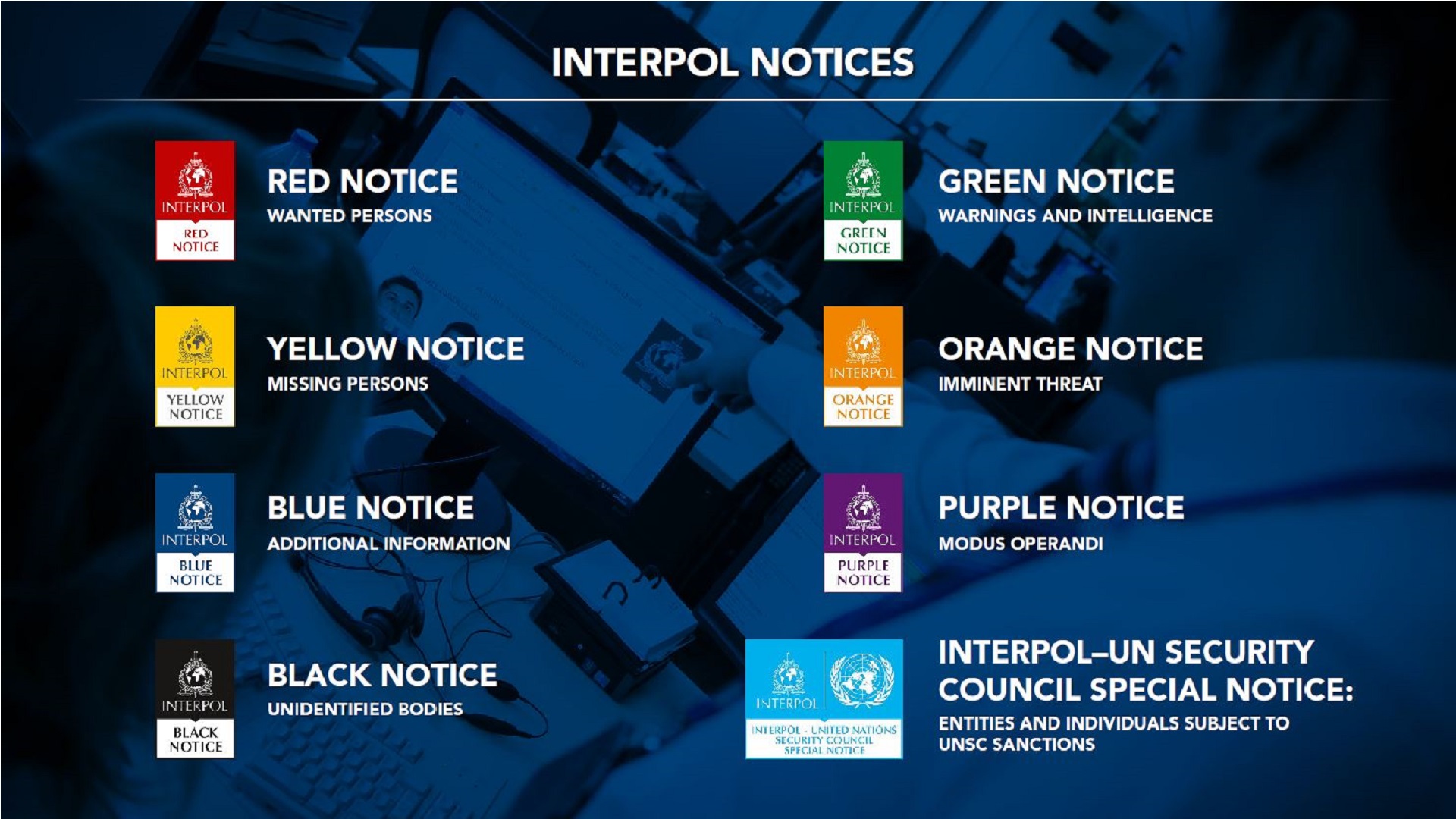
In Montenegro, border police detained a traveller suspected of using a counterfeit passport. Utilizing INTERPOL's secure global police communications system (I-24/7), they verified the document with the issuing authorities, confirming it was a forgery. It was also discovered that the suspect was wanted for attempted murder. A Red Notice was promptly issued, requesting the suspect's arrest and extradition.
Strengthened border controls lead to important seizures
The arrests made during Neptune VI were just one facet of the operation's broad success in strengthening border control. The initiative yielded significant seizures, including EUR 549,000 in undeclared cash, gold worth EUR 10 million, 25 kilograms of cannabis, 35 stolen vehicles, and several illegal rifles and ammunition.
Additionally, Bulgarian border officials recovered two Glock pistols in the possession of an individual travelling with a fraudulent ID card. Notably, the pistol frames had been purchased as components in Central Europe, while the other parts had been falsely declared as exported to North America.
Greg Hinds, INTERPOL's Counter-Terrorism Director said:
“By working together and equipping law enforcement agencies with the frontline tools they need, we can disrupt the activities of terrorists and criminals and bring them to justice. The operation's results demonstrate the importance of sharing intelligence and best practices among countries to combat the evolving threats of terrorism and organized crime.”
Neptune VI is funded by Global Affairs Canada, WCO and Frontex.
Participating countries:
Albania, Algeria, Bulgaria, Cyprus, France, Iraq, Italy, Jordan, Lebanon, Montenegro, Morocco, Portugal, Spain, and Tunisia.




